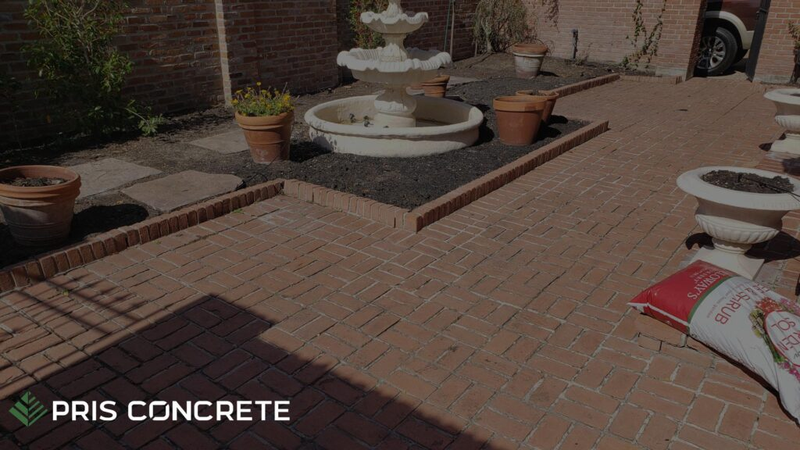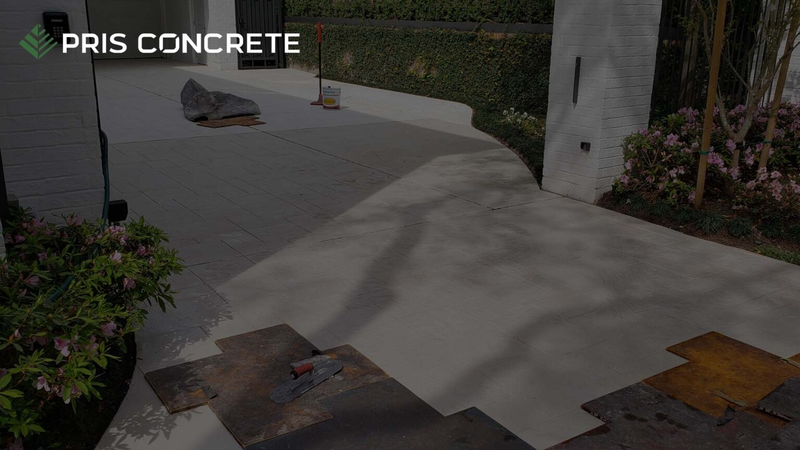The various advantages that concrete flooring offers are astounding to homeowners when they see how beautiful and practical, they are. However, the usefulness of residential concrete flooring within the home is sometimes questioned. Although the cosmetic benefits are clear, many homeowners are unsure about the long-term value of this flooring option.
To assist you in deciding if residential concrete floors are a good option for your house, we have compiled information regarding the advantages, upkeep, aesthetics, and performance of these floors. Our residential concrete contractors assist you in finding inspiration while you explore the flooring options for your house.

More Details Regarding Residential Concrete Floors
Concrete flooring is completed with different polishes, staining, epoxy, and other aesthetic procedures that help the floor blend into the rest of your home’s décor, which is important to know if you want to comprehend residential concrete.
Let’s look at some of homeowners’ typical queries concerning domestic concrete flooring.
Concrete Floors Do Get Cold and Damp?
Compared to ceramic tile or natural stone flooring, concrete floors are not any cooler. You may either install integrated radiant heating components or arrange your property such that sunlight is let in via windows to keep your flooring warm throughout the chilly winters.
Since concrete floors are appropriately insulated and have a fundamental slab with a well-drained subgrade, moisture is not a concern. The majority of towns demand that all buildings adhere to strict building rules, which stipulate that vapor barriers must be constructed beneath concrete slabs to stop moisture movement.
How Hard Are Concrete Floors on My Feet?
In terms of firmness, tile and concrete floors are comparable. They are extremely robust and abrasion-resistant because of their hardness. Area rugs are a fantastic way to add cushioning to your flooring, making it more comfortable for your feet. This is particularly true if the concrete has a smoother surface or has been polished.
Do Concrete Floors Eventually Slip?
Whether they are made of concrete, tile, laminate, wood, or another material, floors may become slick when they are wet. A high-gloss sealer reduces grip, but you may keep your concrete floors less wet by adding a non-slip ingredient to the staining or sealant.
Polished concrete floors are much less slick than polished marble floors or waxed linoleum when maintained dry and clean. As a result, concrete is regarded as a secure material for flooring that allows homeowners to confidently do a number of tasks.

Are Concrete Floors Overtly Seeming Industrial?
Installing flooring made of grey, uncolored concrete could make you think of an industrial atmosphere. Many individuals pick earth-toned stains to enhance the appeal of their property and make it look pleasant and warm in order to prevent this sterile aspect. To improve the interior decor of homes, one of the most common colors for concrete flooring is brown.
How Long Do Concrete Floors Last?
Due to its durability and hardness, domestic concrete floors are quite lasting. They are also stained and resilient, and scraped when fitted and sealed correctly. With the right care, they may endure for decades in perfect condition. Place area and entry rugs to avoid damage to your flooring as you would when dealing with any material to better preserve it. However, after using concrete flooring, you will understand why it is one of the most resilient materials for floors.
Concrete Floors: Do They Crack?
One of the most commonly asked queries is the likelihood of residential concrete floors creating faults. Minor cracks can appear in certain concrete floors, but these can be concealed by using micro-toppings, which provide a smooth, fresh design with a choice of creative treatments. They consist of stencilling, staining, and stamping. Some homeowners, on the other hand, like the visible, dyed random fissures because of their organic, rustic appearance.
Are Decorative Concrete Floor Finishes Very Simple to Maintain?
Yes! Concrete floors require a lot less upkeep than other types of flooring do. Residential concrete flooring requires different amounts of care depending on how much traffic they receive. Unlike commercial settings, most residences get little foot activity, necessitating only a basic cleaning schedule. Concrete floors may be made extremely resistant to scratches, staining, and chemical damage by sealing them with a quality sealer and waxing them.
Contact Residential Concrete Contractors for Help!
You may give your house a fashionable makeover that will raise the value of your property by installing tough residential concrete flooring!
When you’re ready to learn more about concrete flooring options, our knowledgeable residential concrete contractors at PRIS Concrete will go through the options. When looking for concrete flooring, you can rely on us to deliver high-caliber installations at reasonable pricing.
Comments